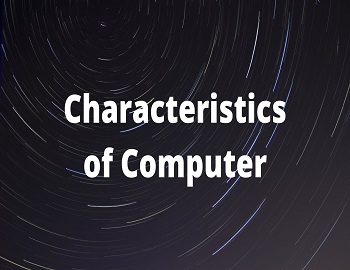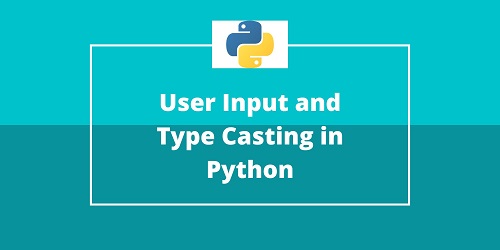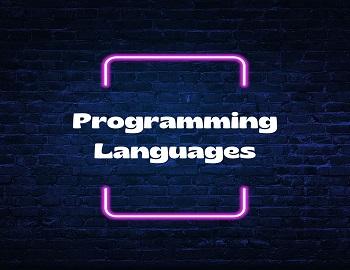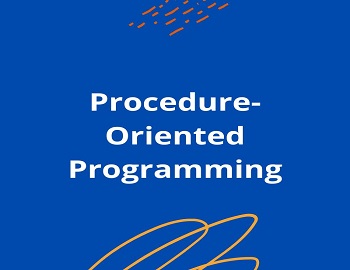Characteristics of Computer:
The human race developed computers so that they could perform intricate operations, such as calculation and data processing, or simply for entertainment. Today, much of the world’s infrastructure runs on computers and it has profoundly changed our lives, mostly for the better. The various characteristics of computers, which make them an essential part of every emerging technology and a desirable tool in human development, are listed below:
(1) Automatic- The computers are automatic machines in the sense that once started on a job, they carry on, until the job is finished, normally without any user’s help. But computers cannot start themselves. They have to be instructed, which (the instructions) specify the way of the job completion.
(2) Speed- The computers can work at enormously high speeds. They are capable of taking logical decisions, performing arithmetic and non-arithmetic operations on alphabets, and copying at unbelievable speed. In a few seconds, a computer can perform such a huge task that a normal human being may take days or even years to complete. Note that the speed of a computer is calculated in MHz (Megahertz), i.e., one million instructions per second.
(3) Accuracy- Besides the efficiency, the computers are also very accurate. The level of accuracy depends on the instructions and the type of machines being used. Since the computer is capable of doing only what it is instructed to do, faulty instructions for data processing may lead to faulty results. This is known as GIGO (Garbage In Garbage Out).
(4) Reliability- Computers’ performance can be measured in terms of reliability. Reliability is the ability to perform some predetermined standard operations without any failure. Computers have built-in diagnostic capabilities which help in continuous monitoring of the system.
(5) Versatility- A computer is capable of performing a wide variety of functions:
- It can accept data and produce results.
- It can perform the fundamental arithmetic operations of addition, subtraction, multiplication, and division.
- It can perform logical operations.
- It can transfer data internally i.e., data can flow from one part to the other in the machine.
(6) Diligence- A computer is capable of performing the same task over and over again with the same degree of accuracy and reliability as the first one. This is because, unlike human beings, a computer is free from monotony, tiredness, lack of concentration, etc., and hence can work for hours together without creating any errors.
(7) Storage Capability- Computers can store a large amount of data and can recall the required information almost instantaneously. In computers, storage devices (like hard disks) are used to store data, while the processor memory is used to perform operations.
(8) Multitasking- Computers can perform multiple tasks simultaneously with ease. For example, it can be used to draft a letter, play music, and print a document simultaneously.
(9) Connectivity- In the initial stages of development, computers used to be isolated machines. With the tremendous growth in computer technologies, computers today have the capability to connect with each other. This has made the sharing of costly resources like printers possible. Apart from device sharing, data and information can also be shared among groups of computers, thus creating a large information and knowledge base.
In spite of having all the above given characteristics, it does possess some limitations also that are strengths of human beings. These are:
(1) Lack of Decision-Making Power- Computers cannot decide on their own. They do not possess the power which is a great asset of human beings.
(2) IQ Zero- Computers are dumb machines with zero IQ. They need to be told each and every step, however, minute it may be.
These limitations of computers are characteristics of human beings. Thus, computers and human beings work in collaboration to make a perfect pair.









Comments (No)